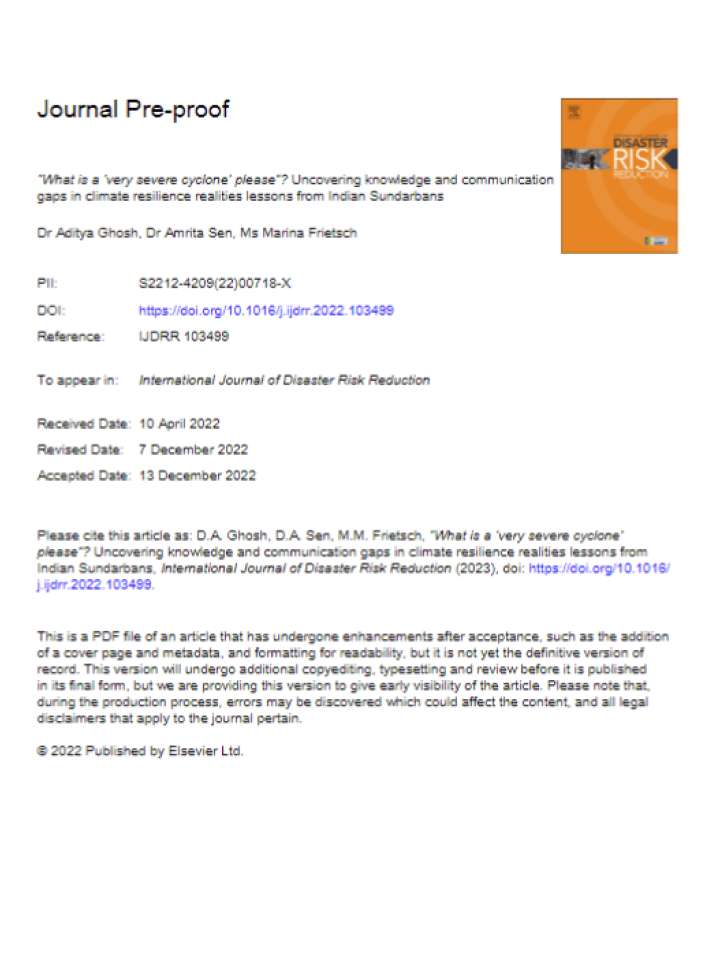“What is a ‘very severe cyclone’ please”? Uncovering knowledge and communication gaps in climate resilience realities lessons from Indian Sundarbans
Situated in the Indian Sundarbans, the cyclone capital of India, this study uncovers how and why advances in scientific knowledge and technological developments are failing to enhance resilience of the marginal and vulnerable populations, instead continually unmaking their lived environments. The investigation is carried out in three steps. Examining the pre-disaster phase about whether the scientific advancements are producing knowledge that are locally actionable and contextual for the end-users comprises the first part of the study. At the second level, it examines whether the knowledge is communicated as comprehensible information that would allow timely action for different stakeholders. Finally, it examines whether the available knowledge is informing resilience governance at a systemic, socioecological level while enhancing specific capabilities of various vulnerable groups.
The main findings of the study suggest that reducing ideas of vulnerability and resilience into ‘scalar’ parameters can achieve limited success in mitigating newer forms of risks induced by climate change. Instead, local adaptive skills, knowledge and context-based learning from micro and situated contexts can be translated into actionable components and can enable resilience and recovery through participatory approaches. Contextual, comprehensible, networked and actionable knowledge is key to enhance resilience of communities with disproportionately high levels of vulnerability to snowballing negative impacts of climate change.
Explore further
